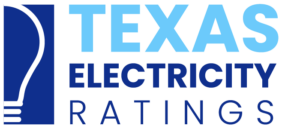When I last left off on my critique of TCAP’s “history” of deregulated electricity in Texas, I was moving one by one through their “major findings” section of the document and giving my thoughts and raising questions about their facts and claims. I’m about half of the way through their findings, so without further ado lets jump right in.
5.) PRICE TO BEAT MECHANISM FAILED TO PROTECT CONSUMERS
High natural gas prices, a flawed “price-to-beat mechanism” under Senate Bill 7, and a reluctance of Texas consumers to switch providers contributed to high average electricity prices in Texas for much of the deregulated era. Although natural gas prices have come down in recent years and the price-to-beat has expired, other challenges remain.
Finally, something that is accurate and not misinformed. The Price To Beat line was horribly flawed. Although note that here TCAP admits, although not directly, that people failing to switch providers and remaining “sticky” to higher priced plans and incumbent providers contributed to higher than average electricity prices. Remember when I pointed out earlier that TCAP is basing much of their sensationalized statistical comparison on EIA data? TCAP themselves just confirmed what I said earlier that any evaluation using EIA data is completely worthless. And it compromises 90% of all their data analysis in this report. The fact that people, on whom the decision to shop and switch is incumbent, chose to pay higher than necessary prices isn’t the fault of the Texas electricity system.
COSTS INCURRED BY GENERATORS SHIFTED TO CONSUMERS
Deregulation-related charges known as stranded costs will add more than $7 billion to consumer bills. Texans will continue to pay these charges for years to come.
No complaint here. Some of the stranded costs that consumers have been forced to pay are complete garbage and outrageous. I’ve expressed that opinion before in this article.
RENEWABLE ENERGY GAINS MAY BE TEMPERED BY HIGHER COSTS FOR CONSUMERS
Over the past 10 years Texas has become a leader in the development of wind power. However, the construction of transmission lines to serve West Texas wind generators will increase transmission costs for all Texans. The aggressive pursuit of wind power has created new reliability challenges.
Gee, thanks for taking the time to point this one out, TCAP. So first TCAP wants to complain about how Texas is facing a power generation crisis, and now they’re complaining that the cost of building new transmission lines for wind generation will cost money (stating the extremely obvious), all the while working towards helping stem the power generation problems. Looks like TCAP is trying to have it both ways on this issue.
THE POWER GRID OPERATOR HAS SUFFERED PERSISTENT MANAGEMENT PROBLEMS
The Electric Reliability Council of Texas (ERCOT), the operator of the power grid for most of the state, has a history of management problems. A major market overhaul overseen by ERCOT was completed years behind schedule and substantially above original cost estimates.
Again, no complaint here. The early issues and overspending while under-delivering by ERCOT are indefensible. I just want to be clear that it wasn’t any management problems by ERCOT that caused the price spikes during the cold snap in February of 2011 or the heat and drought issues from August of 2011.
TRANSMISSION SYSTEM CONSTRAINTS HAMPER SEAMLESS FLOW OF POWER
The transmission system in Texas was built to support the old monopoly system, not the dynamic deregulated market. As a result, moving power from parts of the state where power is plentiful to areas where it is needed most has remained a challenge in the state’s deregulated market. Creating a transmission grid to accommodate the deregulated market will cost Texas consumers billions of dollars.
Again, not much to disagree with here. I just don’t see the point of stating the obvious. Improving and building things costs money that is paid for by Texas taxpayers. And again, obviously the grid was not built with deregulation in mind. And to make the market and grid perfect for our needs will require more work. But what’s the point of listing this as a “Major Finding” other than to associate deregulation with something that will be costly? TCAP says they don’t support re-regulation and favor making deregulation work. They then point out that the grid wasn’t built with deregulation in mind. And then they point out that it will be costly to upgrade the grid. So they are against regulation, they find the status quo inadequate, and they certainly seem to imply in this “Major Finding” that the cost of improving the situation is an issue/problem. Again, TCAP is attempting to play all sides. But maybe they’ll suggest a solution in their recommendations section? Wait, I’ll save you the suspense, they do not propose a solution.
That completes my review of TCAP’s “Major Findings” section of their document. They have a couple things correct in regards to standard costs and the early Price To Beat model that has since been scrapped. However, their efforts to state the obvious and point deregulated electricity in a “guilt by association” strategy overshadows any of their salient points.
Finally, in my next blog post, I’ll take a look at the “Recommendations Section” of TCAP’s document and cast a critical eye on their assertions there. Stay tuned.
